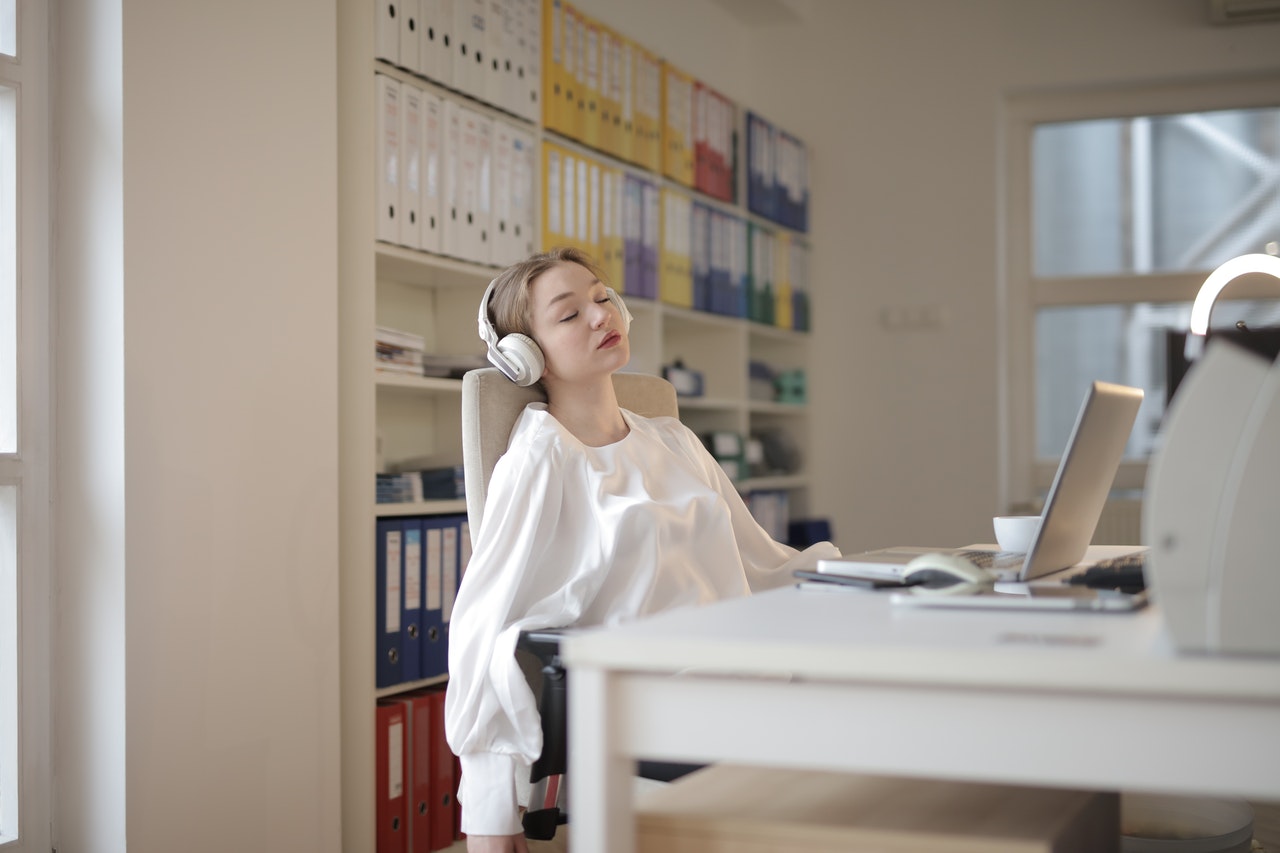If you are experiencing low productivity at work, it might be a mystery that is causing it.
Do you lack focus? Are you unorganized? Are you putting off projects until the last minute? The main problem might be a lack of sleep.
There are many ways to resolve your sleep issues – you might require help from a mattress buying guide to help you pick better homecare beds or you can also try other solutions like sleep aids or consulting with a sleep expert.
I’ve had this productivity problem at work before. It turned out I simply wasn’t consistently getting a full night’s sleep every evening. This affected issues like focus and motivation, but the main cause was not getting enough shut-eye at night.
What Exactly Is Sleep Deprivation?
We all know what it is like to feel sleepy if we didn’t get 7 or 8 hours of sleep the night before. This can be due to various factors like not being able to find the right mattress set.
However, if we experience a lack of sleep for one night, is that actually sleep deprivation? Let’s take a closer look.
What is Sleep Deprivation?
Technically, sleep deprivation is simply not getting enough sleep for your body and brain to function properly. This can cause you to experience feeling drowsy, irritable, and even depressed the next day.
Sleep specialists generally recommend that people get 7 or 8 hours of sleep every night. However, this isn’t really an exact science. While most people need this amount of sleep to feel refreshed the next day, other people need 6 or 9 hours of sleep every night.
Another factor is the person’s age. For example, toddlers need up to 14 hours of sleep per night. On the other hand, seniors tend to experience more “light sleep” at night but still need 7 to 9 hours of slumber, according to SleepEducation.org.

How many hours is Sleep Deprivation?
Sleep deprivation is quite common, and studies show that about one-third of all US adults report it is common for them to get under 7 hours of sleep in a 24-hour period. So if you don’t personally experience sleep deprivation, there is a good chance someone you know does.
What are the Causes of Sleep Deprivation?
There are various causes of sleep deprivation. The most common one is (not surprisingly) not getting a full good night’s sleep. The caveat is the amount needed differs for different people.
There are various other possible causes, including:
- Internal clock problems like late shift work or jet lag.
- Bad sleeping habits
- Caring for a family member during nighttime
Medical or mental health conditions may also cause sleep deprivation:
- Diabetes
- Heart disease
- High blood pressure
- Kidney disease
- Mood disorders
- Stroke
- Anxiety
- Sleep Apnea
- Depression
Sleep Quality and Work Performance
We know from experience that sleep deprivation can have a negative effect on our job performance. In fact, people often tell us to get a good night’s sleep the day before work-related events like big presentations.
However, we often end up spending several hours at bedtime, surfing the web, reading e-books, watching movies, and so on. This can trigger sleep disorders like insomnia, even after you find the right mattress.
Some people actually consider a lack of sleep to be a sign they are keeping busy and super-productive. The problem is it can have the opposite effects.
Less Sleep Means More Productivity?
We often have the wrong idea that somehow spending more time doing late-night work will somehow increase productivity. In a sense, it can be because you are putting in more hours.
That said, if your body doesn’t “recharge” fully at night, this can result in a decrease in productivity during the next day. That means you’ll be doing your day-to-day activities after a moderate or low amount of sleep.
What is called a Good Sleep?
This term refers to the amount and quality of sleep that you get at night. For example, it is not really enough to get 7 or 8 hours of sleep. If you don’t get enough “deep sleep,” you might be exhausted the next day.
There are two main types of sleep: rapid eye movement (REM) and non-REM. Both types of sleep are critical. However, REM “deep sleep” is especially important to help you feel better in the morning.
Besides the quantity of sleep you get every night, the quality of sleep is also important. For example, both REM and non-REM sleep provide the body and brain with different benefits.
If you keep waking up throughout the night, then you’ll likely feel drowsy during the next day. That’s mainly because you’ve spent little time getting deep sleep, which is needed to re-energize. If this is the case, you might want to try using delta 8 THC to help you get enough deep sleep.
It can be purchased in the form of many different products, but if you vape then you’ll probably want to use the vape cartridges available. Not only are they more affordable than disposable vape pens, but they also provide all of the health benefits that delta 8 THC does.
How Lack of Sleep Affects Work Productivity
1. Immune System
This is the body’s first line of defence against illness and disease. When you don’t get enough sleep, it is not just about your body and brain not functioning at 100 per cent. It is also less protected from factors like viruses that could trigger various illnesses.
When you sleep, the immune system actually releases “cytokines” (proteins). This can help protect the body in situations like stress. The problem is lack of sleep might decrease the body’s production of these proteins. That, in turn, can make you more vulnerable to various illnesses.
2. Focus/Efficiency
These are some of the main ways your work is negatively affected by lack of sleep. For example, you might have problems concentrating if you keep dozing during the day, which can affect how much work you get done.
Efficiency is also affected. While you might technically get in an 8-hour workday, for example, the amount of work you complete due to factors like low energy levels or lack of focus could be much lower versus someone who gets a full night’s sleep.
3. Stress
Not getting a full good night’s sleep can also cause your brain to experience more stress. If your brain is stressed, this can trigger a lot of issues related to health and wellbeing.
In fact, even if you experience short-term sleep deprivation, this can cause stress levels to spike, which can affect your mental, emotional, and physical state.
Costs of Poor Sleep on Companies
The issue of sleep deprivation might seem to only affect a worker. If they don’t get enough sleep, they might doze more during the day, for example. It turns out lower productivity can also affect companies.
1. RAND Study
The RAND Corporation conducted a 2016 sleep study that discovered the real costs of sleep deprivation on US companies.
The study’s results were quite dramatic. RAND learned that lack of sleep costs US companies $411 billion per year and 1 million lost workdays. These are both important results because it affects how much companies lose in terms of productivity and money.
2. Effects on Workers
Workers are also affected by sleep deprivation in different ways. For example, if they don’t get enough shut-eye the night before, they often end up over-sleeping and being tardy at work.
In other cases, company employees’ lack of sleep causes them to miss work due to illnesses they’re more likely to get due to sleep deprivation.
For example, if you don’t get a full good night’s sleep, that can make your immune system weaker. In turn, you’ll be more likely to get a cold or flu, for example.
Besides costing their employers productivity and money, it also affects individual workers. The RAND study showed that lack of sleep caused workers to lose an average of 11 days of work and about $1,300 in lost salary.

Top Productivity Benefits from Good Sleep
Meanwhile, if you get a good night’s sleep, here are some benefits you can experience:
- Less burnout risk
- Fewer mistakes
- Better decisions
- Faster recovery from distractions
- Improved memory
What are the effects of sleep deprivation?
A good night’s sleep can do more than help you feel refreshed and energetic. If you don’t get enough sleep, this can cause you to feel unenergetic, unfocused, and unmotivated.
The effects of sleep deprivation can affect different aspects of your work, which can result in being inefficient or even absent from your job.
Fortunately, you can take some basic steps to make sure you are well-rested and ready for better work productivity. They include basic steps like following a sleep schedule, changing your sleeping environment, and reading a mattress buying guide.
Sleeping like a log at night will help you be as busy as a bee the next day at work.

